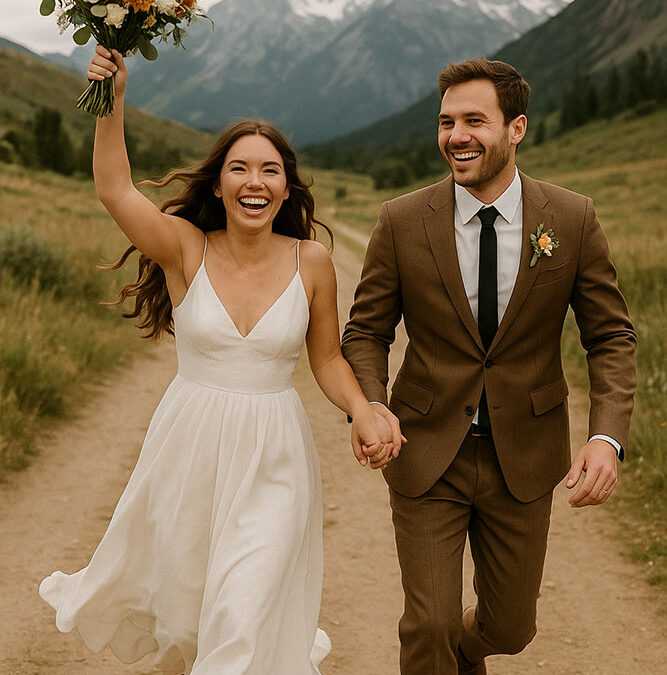What Type of Person Elopes?
What Type of Person Elopes? Elopement has evolved from a secretive act of running away to marry into a popular and celebrated choice for weddings. Understanding who chooses elopement and why has become an important topic in the wedding industry and sociological studies. In this article, we will explore elopement demographics to shed light on the types of people who elope and the motivations behind their decisions.
Understanding Elopement and Its Appeal
Traditionally, elopement referred to couples marrying without the knowledge or approval of their families, often in secret. Today, elopement typically means a small, intimate wedding ceremony without the fanfare of a large event. For many, eloping is less about secrecy and more about personal preference, simplicity, and avoiding the pressures tied to conventional weddings.
Elopement demographics have shifted over time, reflecting changes in cultural attitudes towards marriage, finances, and personal priorities.
Age and Life Stage of Those Who Elope
One key factor in elopement demographics is age. Studies and surveys consistently show that younger couples, particularly those in their 20s and early 30s, are more likely to elope. This can often be attributed to a desire to avoid the high costs associated with traditional weddings, which can be prohibitive for couples just starting their lives together.
However, elopement is not limited to younger age groups. Older couples, including those remarrying or those who prefer a low-key ceremony after long relationships or life changes, also choose elopement. The flexibility of elopement appeals across multiple life stages, from newly engaged young adults to older couples prioritising intimacy over extravagance.
Personality Traits and Lifestyle Choices Linked to Elopement
If we dive into the personality traits prevalent among people who elope, research and anecdotal evidence highlight several common themes:
- Preference for Intimacy and Privacy: People who value close-knit, personal experiences often opt for elopement. They generally prefer more meaningful interactions rather than large social gatherings.
- Nonconformity and Independence: Individuals who reject traditional norms or want to avoid the societal expectations related to weddings tend to elope. These persons appreciate making choices that reflect their own values rather than conforming to family pressures.
- Adventurous Spirit: Many eloping couples are adventurous and see elopement as part of a unique and memorable experience, sometimes choosing destination weddings or unconventional locations.
- Practical and Budget-Conscious: A significant demographic of elopers simply seek to avoid wedding debt. They prioritize the marriage itself over festivities and see elopement as a fiscally responsible option.
Understanding these traits helps explain why some people gravitate toward elopement – it’s a lifestyle choice as much as a wedding choice.
Geographic and Cultural Trends in Elopement Demographics
Elopement rates also vary by geographic region and cultural background. In urban areas where the cost of living and weddings tend to be higher, couples may lean toward elopement as a cost-saving or stress-reducing measure. Urban millennials, in particular, have popularized elopements, favoring minimalist ceremonies with a few close friends or family members.
In contrast, some rural or culturally conservative areas might see fewer elopements, as family and community traditions often emphasize larger, formal weddings. However, these trends are evolving as more families open to non-traditional celebrations.
Internationally, elopement is gaining popularity, especially in countries where wedding expenditures can be overwhelming. The rise of social media has also made elopement more visible and aspirational, influencing couples worldwide.
Impact of Social Media and Modern Wedding Culture
The rise of social media platforms like Instagram and Pinterest has contributed significantly to the elopement trend. Couples see beautiful, curated images of intimate weddings in breathtaking locations, inspiring them to seek personal and unique experiences rather than conventional banquet halls.
Social media also influences the elopement demographics by attracting couples who want to document and share special moments without the logistical overwhelm of a traditional wedding.
What Type of Person Elopes? – Final Thoughts: Who Are the People Who Elope?
In summary, the elopement demographics paint a picture of diverse individuals united by common desires for intimacy, freedom, and simplicity. From young couples avoiding wedding debt to adventurous souls seeking unique experiences, those who elope often challenge traditional wedding norms to focus on what truly matters—their commitment to one another.
Elopement is not defined by age, geography, or background alone but by a shared value system prioritizing personal meaning over spectacle. As societal attitudes shift and wedding culture continues to diversify, elopement is likely to remain an attractive option for many couples seeking authentic and memorable marriage ceremonies.
Contact us to learn more about creating your perfect elopement package!

